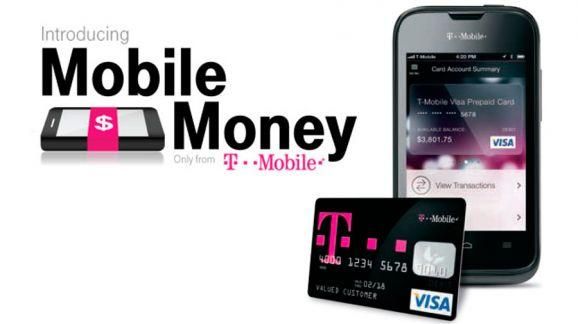I’ve been a T-Mobile customer since the company was known as VoiceStream Wireless. Back then coverage of its PCS network wasn’t that great. Big cities and highway corridors were fine, but as soon as I’d venture off the beaten path, my signal would drop to unacceptable levels. I tolerated that because I was covered 80-percent of the time, and the other 20-percent were when I really shouldn’t be using my cell phone anyway (vacations, family functions, etc.). Today that’s all changed. Coverage has improved significantly (though some areas have better saturation that others), data speeds are respectable (faster in some places than in others), but that’s not why my friends are abandoning their carriers and switching to T-Mobile. They’re switching because T-Mobile is obviously doing some things right. Very right.
History
VoiceStream was established in 1994 as a subsidiary of Western Wireless Corporation. In 1999, VoiceStream spun off from Western Wireless and picked up two regional GSM carriers, Omnipoint Communications, Inc. and Aerial Communications, Inc. in 2000.
In 2001, VoiceStream was purchased by Deutsche Telekom AG for US$35 Billion. The same year, Deutsche Telekom acquired Powertel, Inc. for $24 Billion. VoiceStream Wireless Inc. was renamed to T-Mobile USA, Inc. in July 2002. In 2008 T-Mobile bought up SunCom Wireless Holdings, Inc.
Despite all the multi-billion dollar acquisitions, T-Mobile was always the underdog. In a race between four carriers, T-Mobile was always in the lower half in the rankings. It was obvious that the company needed to do something to keep from losing customers to the competition.
In 2011 the company seemed ripe for the picking, but AT&T failed to consume its (much) smaller rival — and ended up paying a handsome sum and handing over valuable spectrum when the deal fell through.
T-Mobile continued to grow, merging with MetroPCS in 2013 and added more spectrum, financial resources, and an expanded LTE network. Later that year, T-Mobile bought wireless spectrum from U.S Cellular Corp. which allowed for the expansion of its 4G network across 29 additional markets.
In January 2014, T-Mobile entered into an agreement with Verizon Wireless to purchase some 700 MHz A-Block, AWS, and PCS spectrum licenses. This deal reportedly gave T-Mobile the ability to cover somewhere around 158 million people.
During the same time T-Mobile ratcheted up its marketing and changed the way it did business. T-Mobile re-branded itself as an “un-carrier”.
What’s an un-carrier?
“Carriers” have become synonymous with large corporations that tie people into lengthy contracts, pro-load bloatware on “their” devices, overcharge customers for “their” devices, limit features, lock “their devices”, and generally cost far too much. Pocketnow readers outside these United States continually comment that our system is insane (to use “work appropriate” adjectives). T-Mobile, perhaps because of the influence from its European owner, is changing all that.
With today’s T-Mobile, if you don’t want a contract you don’t have to. If you don’t want one of its smartphones you can bring your own. If you want to buy your phone from from T-Mobile, they’ll sell it to you for a down-payment and a monthly fee (if you cancel your account before you’ve paid off your phone, you’ll have to pay back the remainder of what you owe, which makes total sense).
Then T-Mobile cut prices and offered more data-friendly plans than its competition. Family plans were next, with additional lines for $10/month (after the first two). And as a final stab at the heart of the status quo, T-Mobile is even offering to pay your early termination fees (ETFs) to help you “escape” from your old-fashioned carrier.
Banking?
Although a bit off-topic, T-Mobile is making the move away from being a “carrier” and getting into banking. Yup, you read that correctly. On January 22, 2014, T-Mobile announced that it will be offering a Visa card with banking features and a smartphone app to help you manage your money. There are also rumors that the company may be getting into the check-cashing business. You can’t get more “un-carrier” than that!
My friends are switching
Like you, I’ve got friends and family members that have their own plans and their own preferences. Some use iOS products, others like their Windows Phones, but most of my friends are on Android, just like me. To each their own, right?
Over the past several weeks I’ve noticed an influx of questions from all kinds of people, including friends and family that I haven’t talked to in years. All of them are asking me two things: should they switch to T-Mobile, and which new phone should they get.
It’s as if the decision has already been made in their minds, they’re just looking for a trusted opinion to confirm the decision they’ve already reached. Why? T-Mobile’s “un-carrier” plans almost seem too good to be true. They’re not, and I’m enjoying the benefits of T-Mobile’s new direction right now.
What about you?
If you’re in the USA, I want to hear from you! Who is your current carrier? How much are you paying per month? Why haven’t you made the switch to T-Mobile, or when did you make the switch? Not planning on switching? Why? Head down to the comments and let me know!





